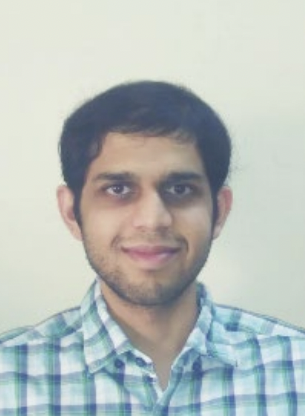Recent News
Seminar: Dr. Rohit Parasnis
March 28, 2025
Student's fire safety research wins ASEE conference award
March 27, 2025
Seminar: Dr. Keith Paarporn
March 26, 2025
Seminar: Dr. Shirin Panahi
March 20, 2025
News Archives
Seminar: Dr. Rohit Parasnis
March 28, 2025
Tackling Uncertainties in Multi-Agent Networks
Dr. Rohit Parasnis, Massachusetts Institute of Technology

Monday, March 31, 2025 in MECH 310
2:00-3:00 P.M.
Assistant Professor Candidate
Abstract:
Multi-agent networks – such as multi-agent swarms, social networks, and vehicular networks – are challenging to analyze due to uncertainties in their static or dynamic network topologies, as well as cognitive and behavioral non-idealities of human agents. In this two-part talk, I argue that these challenges can be addressed by leveraging tools from networked control, optimization, and game-theoretic incentive design, and by developing new tools when necessary.
The first part addresses an analysis problem: can we establish performance guarantees for distributed algorithms, such as distributed hypothesis testing, when they evolve over dynamic networks with uncertain, poor, or aperiodic connectivity? We affirm this by generalizing the eigenvector assertions of the Perron-Frobenius theorem—a foundational tool in matrix analysis—to stochastic matrix sequences. Our results also have potential applications in areas beyond distributed control.
The second part addresses a design problem: in networks of commercial entities, how can we suppress an unsustainable activity without compromising stakeholder well-being? Using a coupled-activity network game model that captures both intra-activity and cross-activity interactions, we formulate this question as a non-convex optimization problem. Despite its NPhardness, we show that combining penalties with premiums can improve both welfare and sustainability without reducing the utility of any agent. Furthermore, under regionally uniform pricing, we show that the convex relaxation of the welfare maximization problem yields a useful solution, which we relate to a new measure of node centrality. Empirical analyses support our theoretical results.
Future work will entail combining tools from control and incentive design to address emerging challenges in cyber-physical human systems in the face of network uncertainties.
Biography:
Rohit Parasnis is a Postdoctoral Associate in the Laboratory for Information and Decision Systems at the Massachusetts Institute of Technology. He received B.Tech in Electrical Engineering from the Indian Institute of Technology Madras in 2016 and a Ph.D. in Communication Theory and Systems from the University of California, San Diego in 2022. His research focuses on foundational advancements in network analysis, control, and game theory, with applications across social networks, sensor-actuator networks, socio-technical systems, and ecosystems.
